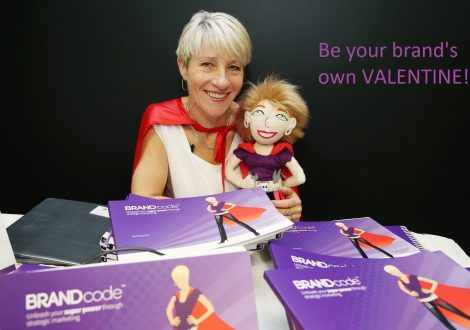If you define what you do by the product/service you sell rather than the experience/outcome it delivers to the customer, you could be suffering from ‘marketing myopia’.
The term ‘marketing myopia’ was coined in 1960 by Harvard Business School Professor Theodore Levitt. It’s a form of business shortsightedness that occurs when a business owner defines their purpose too narrowly. A narrow purpose happens when the leader looks at the business through the lens of the product (profit) rather than the lens of the customer (promise).
Professor Levitt cites the railroad industry as nearly going out of business because companies thought of themselves as being in the railroad business rather than in the transportation business. Similarly, when television came along, Hollywood was negatively impacted for a period because it defined its business as movies rather than entertainment.
Defining what you do by the product/service you sell is myopic (short sighted) and could impact the ‘stickability’ of your marketing message. To resonate with your target market, you need to define your product/service through the lens of the customer.
Consider these examples.
|
Industry/Sector |
Product-Centric (myopic) Purpose |
Customer-Centric (broader) Purpose |
|
Insurance |
Protection of assets |
Preservation of lifestyle |
|
Hair dressing |
Personal grooming |
Confidence and self-esteem |
|
Running shoes |
Foot protection |
Inspiration for life |
|
Energy drink |
Refreshment |
Extreme living |
|
Cereal |
Breakfast food |
Better health |
|
Car |
Mobility |
Discovery and adventure |
People don’t buy products per se; they buy an experience/outcome. Marketing messages, therefore, have more stickability when crafted with emotional intelligence; by tapping into how people want to look, feel and live better because of buying the product/service.
Charles Revlon, former owner of Revlon International Corporation, said it perfectly when he stated, ‘In the factory we make cosmetics. In the department store we sell hope.” Mr Revlon knew what business he was ‘really’ in and it wasn’t cosmetics.
When crafting your marketing messages, ask yourself “What business am I really in?”, then answer it from the perspective of what customers want, not from the perspective of what the company wants. That way, you’ll avoid the affliction of marketing myopia.
©Ros Weadman 2022
To receive this enews straight to your inbox, subscribe here.
©Ros Weadman 2022



